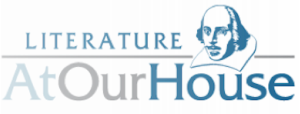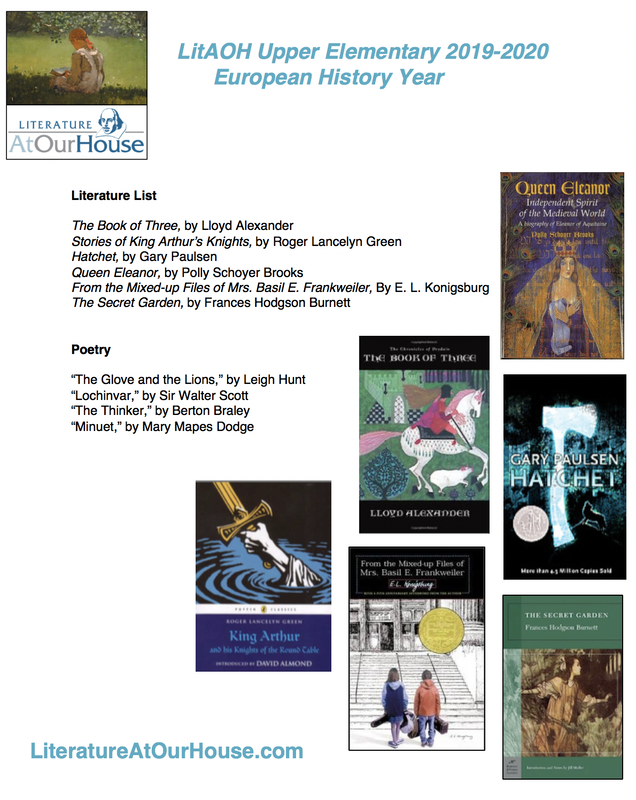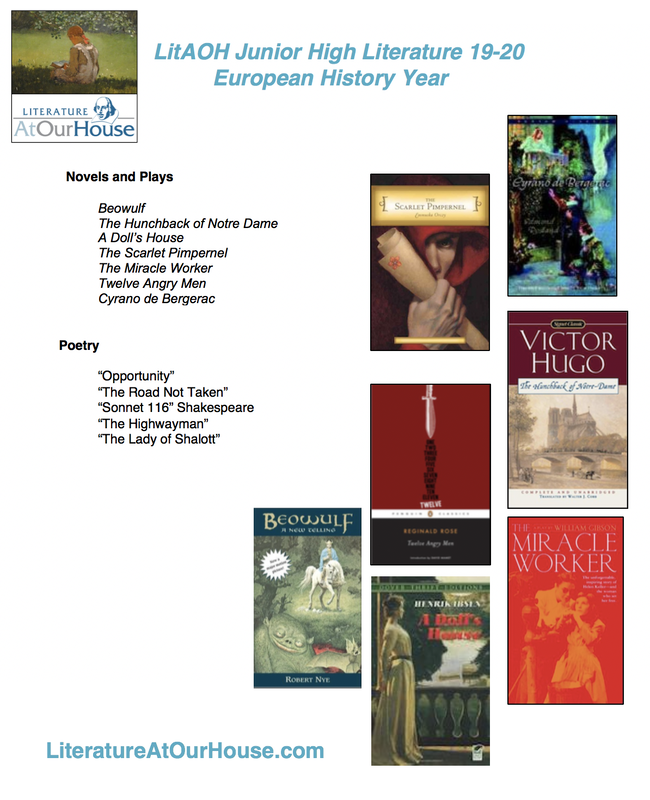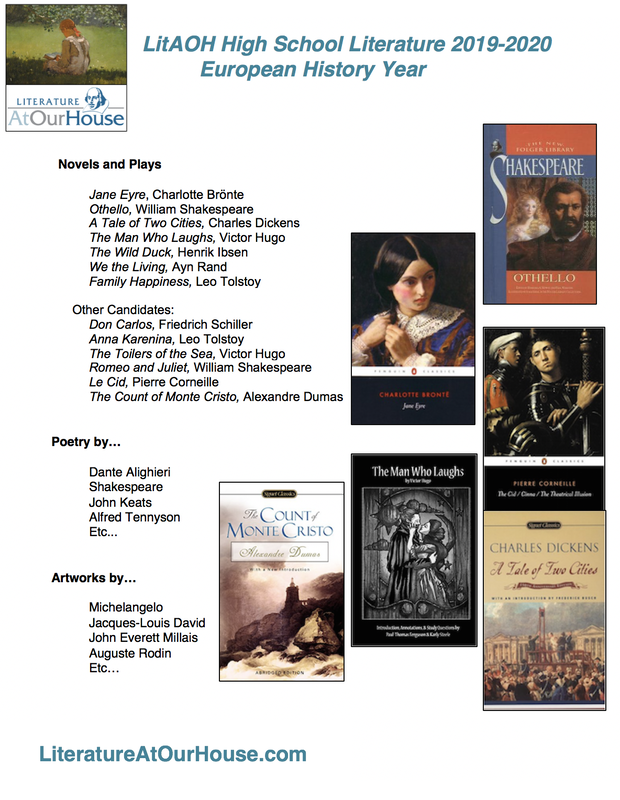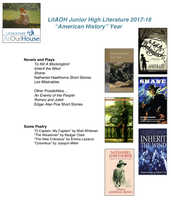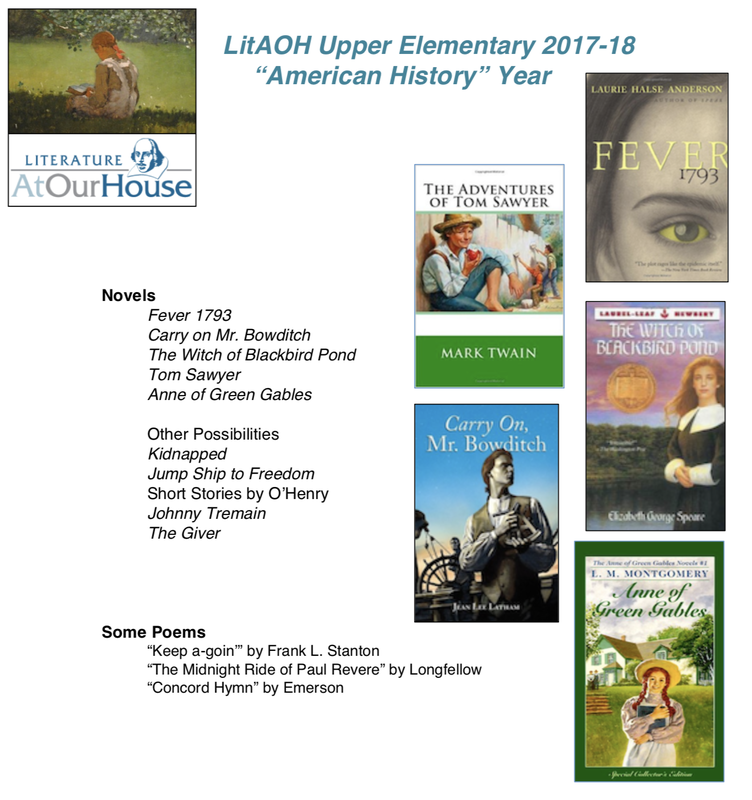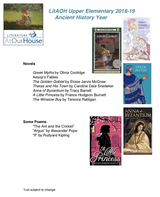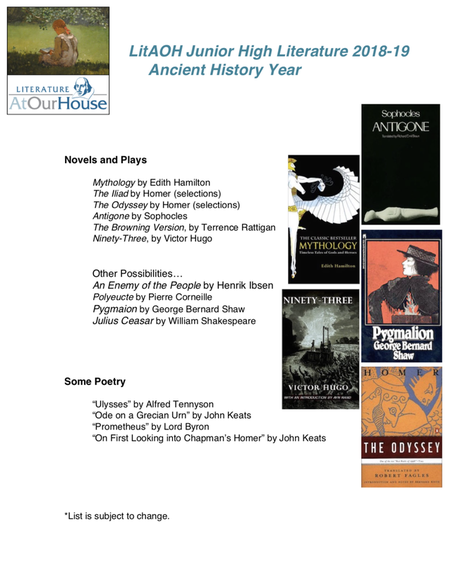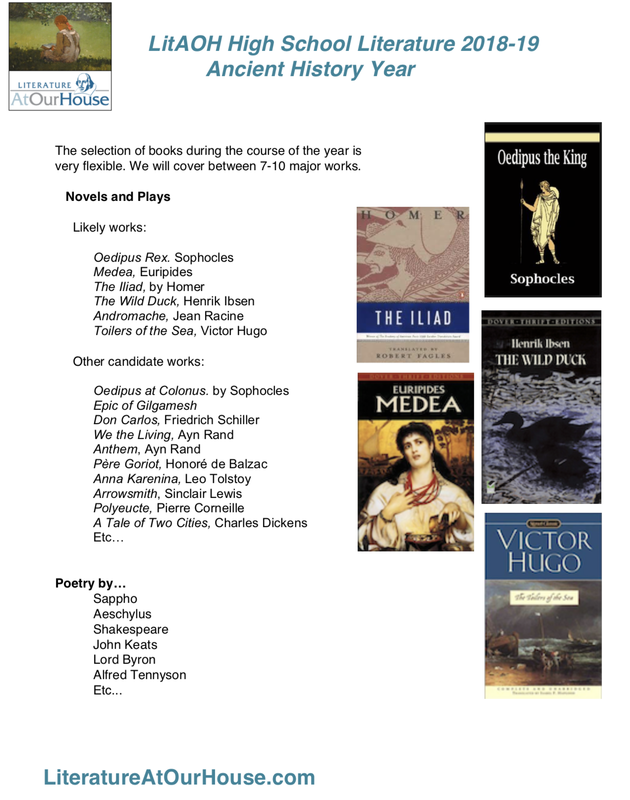Watch the recording of our most recent Open House from Spring '24!
|
Please watch this video of our most recent Open House to find out more about the Curriculum for '24-'25! Use the time stamps to go to topics of interest.
|
Spring '24 Open House
A look back at what the students of LitAOH have accomplished, and a look forward to next year! 1:46 - Looking back at 23-24 32:52 - Looking Ahead to 24-25: Lower Elementary Literature 36:56 - Upper Elementary Literature 40:36 - Junior High Literature 45:58 - High School Literature 50:33 - 24-25 Schedule and Registration |
Frequently asked Questions
"How do you pick out books?"
Books won’t be chosen simply because they are considered classics. They must have themes or characters that are meaningful to students’ lives and growth. Students will be able to relate to themes and connect them to their own experiences. Additionally, all books chosen will have dramatic, engaging plots. Finally, books will have meaningful integrations with poetry and history. The poetry we incorporate will be thematically connected to the novels and plays we read in class.
View the “Book Lists from previous years” section below for more information on specific cycles of books based on historical time periods.
View the “Book Lists from previous years” section below for more information on specific cycles of books based on historical time periods.
"Why do you spend 10-15 classes on a single book?"
The goal is to get the most out of the experience, both in understanding the deeper meaning of the stories and the relevance of that meaning to our lives. It’s an opportunity for us to contemplate how the characters and events in these stories connect to our lives and give us insight into our own experiences.
The power of literature is not only that you get to contemplate the meaning of these characters' lives, but also that you get to experience it along with them. Some programs prefer to have students read books in their entirety, then conduct discussions afterwards. At Literature At Our House, we believe students will have a more powerful experience of a novel if they have a deep understanding of and emotional connection to the story while they are reading it and experiencing it alongside the characters.
The power of literature is not only that you get to contemplate the meaning of these characters' lives, but also that you get to experience it along with them. Some programs prefer to have students read books in their entirety, then conduct discussions afterwards. At Literature At Our House, we believe students will have a more powerful experience of a novel if they have a deep understanding of and emotional connection to the story while they are reading it and experiencing it alongside the characters.
"What is a class like for students?"
Classes are conducted synchronously on Zoom. At the beginning of a typical class, students are given the opportunity to write on a collaborative whiteboard where they can note down their thoughts, reactions, and questions about the reading assignment. Next, the class discusses several Challenge Questions which require students to examine the characters and plot and recall important events from the reading. Finally, towards the end of class, students might prepare for a writing assignment based on the discussion, or engage in reading out loud important scenes from the story.
Other class activities might include: the name game (a method to remember characters and their dominant traits); Krazy Character Combos (comparing similarities and differences between characters from separate novels read in class); and integrations between art, poetry, and the current novel (including Mr. Travers’ Art Reading method and poetry study, memorization, and recitation). Each of these activities allows students to build a deeper understanding of the story and ensures they are getting the most out of each reading.
Below are several photos showing what a typical class looks like on Zoom.
Other class activities might include: the name game (a method to remember characters and their dominant traits); Krazy Character Combos (comparing similarities and differences between characters from separate novels read in class); and integrations between art, poetry, and the current novel (including Mr. Travers’ Art Reading method and poetry study, memorization, and recitation). Each of these activities allows students to build a deeper understanding of the story and ensures they are getting the most out of each reading.
Below are several photos showing what a typical class looks like on Zoom.
"What do you do in the Writing Workshop?"
The Writing Workshop is an extension of our literature classes. The literature classes do include regular writing assignments, however the workshop supplements the study of the books by giving students more time to write, opportunities for peer feedback, and opportunities to focus on structure and style.
Students must be enrolled in the literature classes to join the Writing Workshop, but not all literature students opt to join in.
Students must be enrolled in the literature classes to join the Writing Workshop, but not all literature students opt to join in.
"What do you do in the Art Appreciation classes?"
The Art Appreciation classes are based on Mr. Travers’ “Touching The Art” approach. Students learn to “read” the stories in the artworks in a similar way that they read literature. Each artwork is like a poem that captures the moment of a story that students experience, connect to personally, and integrate with the novels they read. As part of “reading” artworks, students exercise their powers of observation and deduction, as well as develop their creative writing skills. In the JH and HS art appreciation classes, students deliver presentations to their classmates.
Book Lists from previous years
The book selections are on a rotating three-year cycle. One year features books set in the Ancient civilizations, a second features European classics, and a third features American classics.
